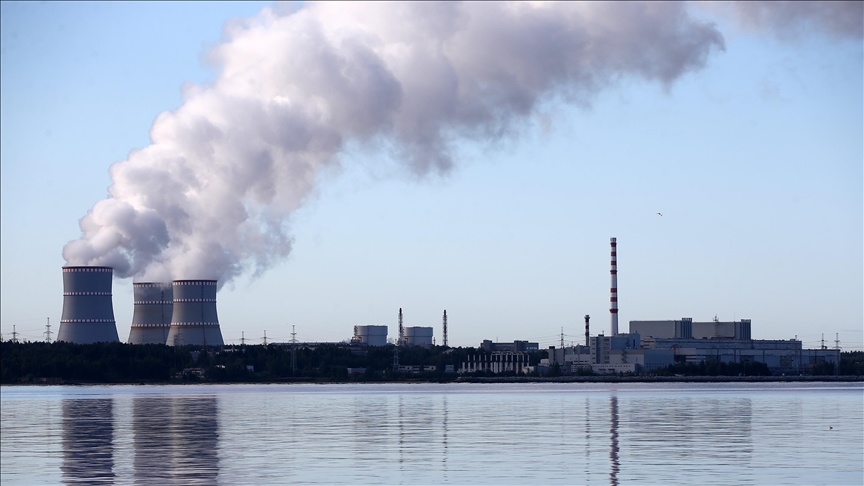Egypt, Iran, IAEA discuss ways to advance peaceful solutions to Tehran’s nuclear program
Egyptian Foreign Minister Abdelatty spoke with Iranian counterpart Araghchi, IAEA chief Gross to discuss efforts to restore cooperation and de-escalate regional tensions over Iran’s nuclear file, says Egypt's Foreign Ministry
 File Photo
File Photo
ISTANBUL
Egyptian Foreign Minister Badr Abdelatty spoke with his Iranian counterpart Abbas Araghchi and International Atomic Energy Agency (IAEA) Director General Rafael Gross to discuss ways to strengthen regional security and stability by finding peaceful solutions to Iran's nuclear issue, Egypt's Foreign Ministry said on Friday.
Abdelatty spoke with Araghchi and Grossi separately over the phone on Thursday to follow up on developments in Iran's nuclear program, according to a ministry statement.
Talks focused on “supporting regional security and stability through peaceful solutions to the Iranian nuclear file,” the statement added.
Abdelatty emphasized the importance of maintaining dialogue between Tehran and the IAEA and resuming and expanding cooperation based on the agreement signed in Cairo on Sept. 9. He also called for intensified consultations among the relevant parties in the coming period.
On Sept. 9, Egypt announced that Iran and the IAEA had reached an agreement, brokered by Cairo, to resume cooperation that had been suspended since June 2025.
The phone calls, according to the ministry, were made in accordance with Egyptian President Abdel Fattah al-Sisi's directives to continue efforts to reduce tensions and promote calm throughout the Middle East.
Earlier, on Oct. 18, Abdelatty held similar phone calls with Araghchi, Grossi, and US Middle East envoy Steve Witkoff to discuss ways to resolve the Iranian nuclear crisis.
At the time, the parties agreed to “continue following up on efforts and reviewing proposals to achieve the desired breakthrough,” according to the ministry.
Those calls came hours after Iran’s Foreign Ministry announced that UN Security Council Resolution 2231, adopted on Oct. 18, 2015, to endorse the 2015 nuclear deal, had expired, implying that Tehran was no longer bound by UN sanctions on its nuclear activities.
Resolution 2231, which lasted 10 years, endorsed the 2015 Joint Comprehensive Plan of Action (JCPOA) between Iran and world powers. the US, China, Russia, France, Germany, and the UK, limiting Iran’s nuclear program in exchange for lifting UN sanctions.
On Aug. 28, France, the UK, and Germany announced the activation of the “snapback” mechanism under the 2015 deal, reinstating sanctions on Iran for alleged violations, following the US’s unilateral withdrawal from the agreement.
Israel, the US, and several European nations accuse Iran of seeking to develop nuclear weapons, while Tehran maintains that its program is purely for civilian purposes, including electricity generation.








